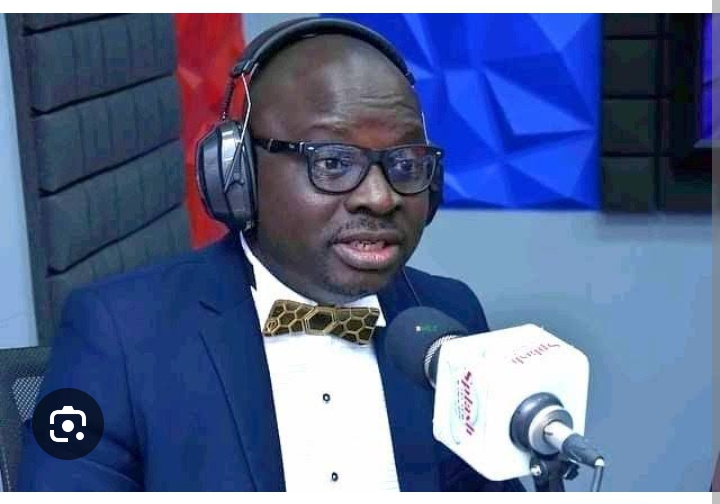In a dramatic turn of events, popular Yoruba radio presenter, Mr. Ibrahim Adesola, widely known as “Akamara,” has formally withdrawn his earlier claims linking the sacred Hajj garment (Ihram) to fetish practices. The veteran broadcaster made the admission during an emergency reconciliation meeting convened by Sheikh Iskeel Lawal Sugar, the Wakeelul Muslimeen of Yorubaland, Edo, and Delta States, held on Saturday, April 26, 2025, at his office in Ogun State.
The radio host, who is known for his fiery and often controversial broadcast style on the programme AKAMARA, stunned community leaders and Islamic scholars when he revealed that the viral conversation alleging that an influential Muslim philanthropist demanded used ihram garments for ritual purposes was entirely staged. According to Akamara, the so-called phone interviews were scripted, and all the voices involved were fictional, including that of the alleged sponsor, Alhaji Lukman Owokomago, and the supposed whistleblower, Najeem Ajisafe.
Present at the meeting were prominent Islamic clerics and stakeholders from Yewa land, including the Chief Imam of Owode Yewa, representatives of the League of Imams and Alfas in Ogun State, legal practitioners, media professionals, and the ad-hoc chairman of the Ogun State Muslim Pilgrims Board, Sheikh Ishaq Olorungbebe. They were joined by Sheikh Fasasi Akeukanwo and other respected scholars who gathered to seek clarity on a matter that had unsettled the Nigerian Muslim community in recent days.
The controversy began when a voice clip circulated widely across social media platforms, especially TikTok, suggesting that certain individuals were being sponsored to Hajj by a man who would later insist on collecting the ihram garments worn during the sacred rites, allegedly for ritualistic purposes. The most disturbing part of the audio featured an alleged voice of the sponsor claiming that the garments were part of an agreement and that failing to hand them over could have dire spiritual consequences. These recordings were played live on Akamara’s programme, sparking widespread anger, confusion, and backlash from Muslims within and outside Nigeria.
Upon receiving reports about the growing unrest, the Office of the Wakeelul Muslimeen launched an investigation, leading to the invitation of Mr. Adesola for questioning. During the closed-door meeting, which was later recorded and shared on the official social media handles of the religious leadership, the broadcaster confessed to fabricating the entire storyline, including all characters and conversations. He admitted that it was a deliberate attempt to drive engagement and draw attention to his platform.
Following his confession, Mr. Adesola was directed to publicly retract the claims by recording a two-minute explanatory audio and dedicating an entire edition of his next programme to clarify that the story was false. He accepted the terms and agreed to comply fully with the directive, a move seen by many as the beginning of a long road to restoring public trust.
In a statement issued the following day, Sunday, April 27, 2025, by the Administrative Officer in the Office of Wakeelul Muslimeen, Alhaji Lawal Abu Mordiyah, the scholars strongly condemned the misuse of Islamic content for personal gain. They warned bloggers and media personalities who attempt to exploit religious themes for popularity or monetary profit to desist or risk legal consequences, including imprisonment. Despite the gravity of the offence, the religious leaders appealed to the global Muslim community to forgive the broadcaster’s misconduct and continue to uphold the principles of Islam with patience, dignity, and tolerance.
Meanwhile, reactions have continued to trail the confession, with media professionals and ethics advocates expressing outrage at the calculated spread of disinformation. One of Nigeria’s leading journalism experts, Dr. Jamiu Folarin, described the incident as a textbook case of deliberate deception, warning that such behaviour, if unchecked, could destroy public confidence in media institutions. According to him, the Akamara saga underscores the urgent need for improved regulation of content creators and the implementation of media literacy initiatives.
Dr. Folarin stressed that while mistakes can be forgiven, the intentional creation of false narratives for the purpose of going viral is deeply unethical. He called for broadcasters to be held accountable to professional standards, noting that such infractions in a more regulated environment would attract sanctions, including suspension or revocation of licenses.
He further highlighted the growing threat of misinformation in the age of social media, especially as satire, pranks, and staged broadcasts increasingly blur the lines between entertainment and journalism. According to him, “content creators must be trained to understand the weight of their influence and the responsibility that comes with it. There must also be systems in place to ensure that satire is clearly labelled and that the public is not misled.”
As for Ibrahim Adesola, the veteran broadcaster has now been given an opportunity to make amends and repair his tarnished image. But many observers believe the road ahead will not be easy. With trust eroded and public anger still simmering, it remains to be seen whether his contrition will be enough to restore his reputation in the eyes of his audience and the broader Nigerian Muslim community.
